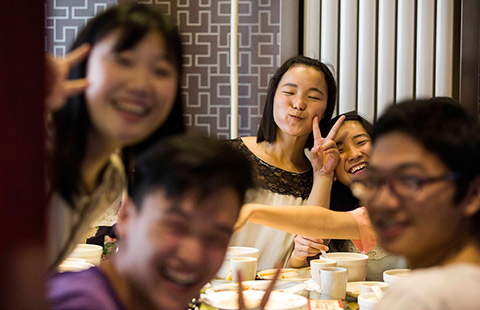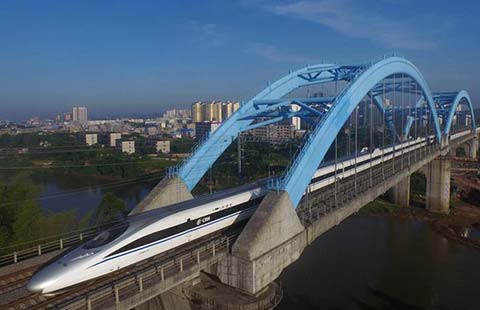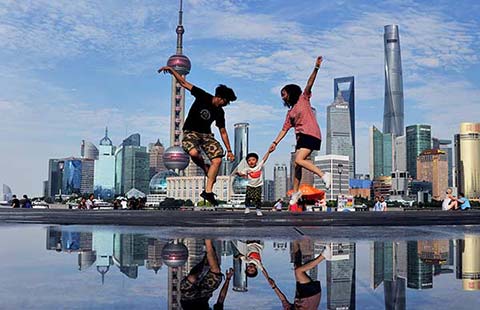China consumer prices up 1.8% in July
(Xinhua) Updated: 2016-08-09 09:56
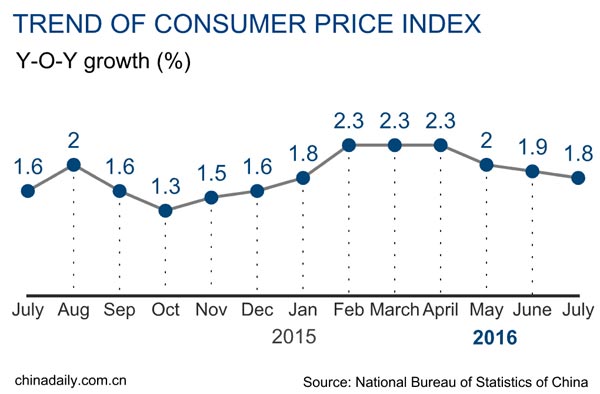
BEIJING - China's consumer price index (CPI), a main gauge of inflation, grew 1.8 percent year on year in July, down from June's 1.9 percent, the National Bureau of Statistics announced Tuesday.
The July data dropped for the third-consecutive month from 2.3 percent in April, when the CPI reached its highest level since July 2014.
On a month-on-month basis, the CPI rose 0.2 percent in July.
NBS statistician Yu Qiumei attributed the moderated inflation mostly to eased food prices.
The price of pork rose 16.1 percent year on year in July, slowing from 30.1-percent rise recorded in June.
Since January, CPI has been calculated using a new comparison base and included more products and services, while slightly reducing the weighting of food.
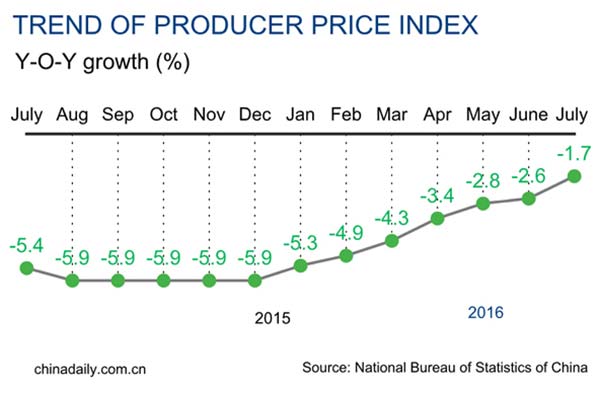
The producer price index (PPI), which measures costs for goods at the factory gate, dropped 1.7 percent year on year in July.
The PPI decline narrowed from a 2.6-percent decrease in June thanks to stronger industrial product prices for nonferrous metal smelting and rolling, ferrous metal ore mining, and ferrous metal melting and rolling, the NBS said in an online statement.
However, the July reading continued a 52-month decline streak as China's economic slowdown and industrial overcapacity dampened prices.
On a month-on-month basis, July's PPI edged up 0.2 percent.
Related story: Mild inflation creates room to boost economy by Wang Yanfei from China Daily
A mild rise in consumer inflation and a smaller drop in wholesale prices in June leave ample space for more stabilization measures to prop up growth, economists said.
The consumer price index, a main gauge of inflation, rose 1.9 percent in June year-on-year, and declined by 0.1 percentage points in June compared with the previous month, official data showed, remaining below the annual target set by the central government of around 3 percent.
The producer price index, which measures changes in wholesale prices, registered a 2.6 percent drop year-on-year in June, which is smaller than the 2.8 percent drop in May.
Zhou Jingtong, a senior economist with the Institute of International Finance, a think tank under the Bank of China, attributed the easing CPI to a mild month-on-month increase in food prices, which weigh heavily among goods used to calculate consumer inflation.
Food prices went up 4.6 percent in June, compared with a 5.9 percent increase in the previous month.
Eased inflation pressure leaves space to create a relatively relaxed monetary policy in the second half of the year, given that economic pressure is likely to still exist, according to Ren Zeping, chief investment strategist with Guotai Junan Securities Co.
"More growth-stabilizing measures are needed in the third quarter to ensure that the economy will grow within a reasonable range," said Ren, referring to the central government's economic growth target of 6.5 to 7 percent for this year.
Qu Hongbin, chief economist with HSBS Holdings, said in a research note on Sunday that the government should take more measures to boost confidence of entrepreneurs at a time when domestic demand remains weak.
"Although industrial product prices rebounded consecutively in the past couple of months, business confidence remaining in the doldrums would drag down the improvement of PPI," Qu said.
- Smart home system gets standardized platform
- China, US help JLR's first post-Brexit month to record sales
- China producer prices down 1.7% in July
- China consumer prices up 1.8% in July
- Chinese engineering giant to design mega Padma bridge corridor
- China to crack down on illegal rare earth mining
- Farm produce prices post declines last week
- Chinese firm signs $4.44b deal to build railway in Bangladesh



